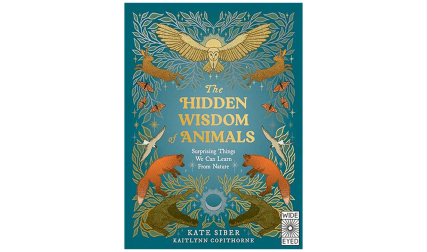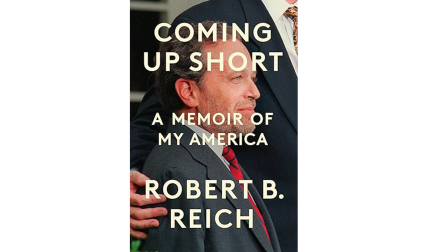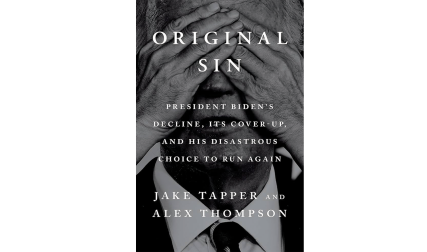Henry Paulson ’68
Dealing with China: An Insider Unmasks the New Economic Superpower
(Twelve)
It would have been impossible for me, as a member of the staff assigned to the young U.S. liaison office in Beijing in 1975, to envision that China’s ponderous state-run command-and-control economy could be transformed to compete in the 20th century. In Dealing with China Paulson provides exclusive background and insight into the process of this transformation. The book is a first-rate insider account of how Goldman Sachs—with Paulson at the helm—collaborated with its Chinese counterparts to force reluctant economic managers to adopt Western rules on managerial control, accounting regulations and banking best practices in the early 1990s.
Starting with paramount leader Deng Xiao-ping’s exhortation to enact changes “by crossing the river by feeling the stones” and explore new market-oriented reforms, Chinese leaders moved forward boldly. Paulson details the dates, places, times, principal actors and substance of these negotiations. He attributes Goldman’s success in negotiations with his Chinese colleagues to recognizing “an apparent preoccupation [of the Chinese] with rank…where trust and face must be preserved.” Building personal relations was key. Although Paulson refrains from commenting on this, readers should know that his Chinese “clients” were members of the Chinese Communist Party, whose iron rule over China is maintained by the equivalent of a KGB clone. Few that Paulson dealt with had to worry about a midnight knock on the door.
When Paulson left Goldman Sachs to become secretary of the U.S. Treasury in 2006, his preoccupation with China did not diminish. He was responsible for coordinating the “Strategic Economic Dialogue” (SED) between the United States and China. The chief spokesman during the ensuing five SED meetings, he describes the difficulties in forging a new economic relationship with China. Dry and technical at times, Paulson’s prose is also fluid, precise and readable. For those who want to understand China’s current economic rise to power, this book will not disappoint. —Robert D. Booth
George W. Liebmann ’60
The Fall of the House of Speyer
(I.B. Tauris)
Historian Liebmann sheds new light on the third largest investment banking firm in the United States at the turn of the 20th century, which financed the Southern Pacific Railroad, Germany’s Weimar Republic and the London Underground—before being undone by nationalist passions aroused by World War I.
Morton Kondracke ’60
Jack Kemp
(Sentinel)
Longtime journalist Kondracke draws on never-published papers and the Kemp oral history project to trace the life story of one of the most important Republicans from the 1970s through the 1990s. It’s the definitive biography of the “bleeding-heart conservative” who, according to the author, redefined American politics.
Elisa (Rush) Port ’86
The New Generation Breast Cancer Book
(Ballantine Books)
Breast cancer survival rates are at an all-time high, and so is the information—and misinformation—available online and from well-meaning family and friends. Here the chief of breast surgery at Mount Sinai Medical Center offers a guide to cutting-edge care, from testing to treatments to living as a “survivor.”
Eleni (Tsakopoulos) Kounalakis ’89
Madam Ambassador
(New Press)
The former U.S. ambassador to Hungary recaps three years of diplomatic life in Budapest, from lessons at the U.S. State Department’s “charm school” to trips into war zones. Part foreign policy memoir, part inspiring family story, Kounalakis reveals what it’s like to represent the U.S. government abroad.
Christopher Rea ’99
The Age of Irreverence
(University of California Press)
Rea, an Asian studies professor at the University of British Columbia, describes how cultural expressions of laughter—jokes, play, mockery, farce and humor—were used by cultural commentators to make veiled critiques of China’s government as it entered the modern age.
Additional books that were not listed in our print version:
Bruce Sherman ’53, writing in Spanish as Alejandro Martinez, calls on his experience raising two sons in a guide to understanding the impact of children on everyday life in Esta Listo Para Tener Hijos? (Are You Ready for Kids?) (Balboa Press).
Former geologist and park ranger Bruce Sloane ’57 shares the exploits of a young girl and her family and friends in the mountains of Virginia in his humorous ebook for all ages, Tales of Shirt Tail Hollow (Amazon Digital).
Strategic planning professor Bill Roth ’62 presents a new model for education that focuses on developing each student’s unique potential as coauthor of Redefining U.S. Education: A Systemic Approach to Teaching (Productivity Press).
Psychologist Steven Reiss ’64 follows his 2000 book on the 16 basic desires that motivate action with The 16 Strivings for God: The New Psychology of Religious Experiences (Mercer University Press), in which he offers a comprehensive theory of the motivations and characteristics unifying most religious beliefs and practices.
Geoffrey J. Huck ’66 uses cognitive science and linguistic research to provide an empirically based argument on the ways in which education can better serve students as readers and writers in What is Good Writing? (Oxford University Press).
Through the lens of 17th-century characters, Bill Schaill ’66 sets an exciting narrative with seafaring Dutchmen, daring women and tropical isles in MacHugh and the Faithless Pirate (Fireship Press).
Geologist Albert Lamarre ’71 draws on dramatic events from his life—his office was bombed, a Texas rancher leveled a gun at him while he attempted to examine an outcropping—to enliven his memoir, Mountains, Minerals, and Me: Thirteen Years Revealing Earth’s Mysteries (iUniverse).
Litigator-cum-screenwriter Reed Moran ’73 shares the core beliefs essential to creating a unique voice in his textbook, Why Plot Never Matters: Telling the Screen Stories in Your Heart (Kendall Hunt).
David Foulke ’89, a managing member of asset management firm Alpha Architect, offers a synopsis of what he learned while serving as a consultant and asset manager as coauthor of DIY Financial Advisor: A Simple Solution to Build and Protect Your Wealth (Wiley).
Tasha Bock ’15 seeks to inspire a new generation with an illustrated children’s book in which two cats, Mischief and Tinker, set out to reinforce the belief in equality for all people, regardless of gender, in Feminist Felines (self published).
Scholar and activist Jackson W. Shultz, Adv’14, records the stories of 34 Americans who identify as transgender, and follows their peaks and troughs of daily life in a society that is at times supportive and other times discriminatory in Trans/Portrait: Voices From Transgender Communities (Dartmouth College Press).




